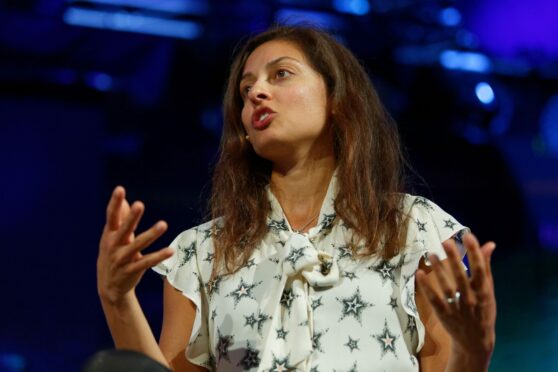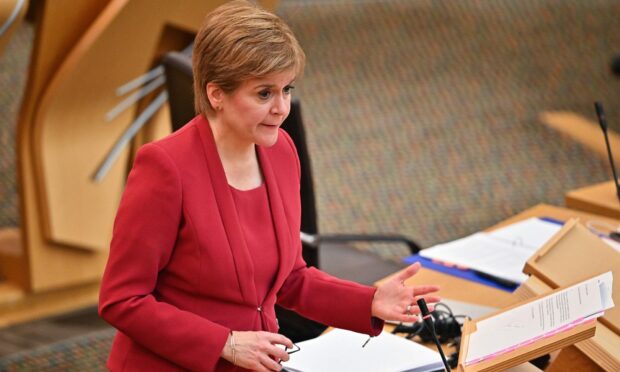A prominent public health expert has said the Scottish Government might announce an expansion of the vaccine passport scheme to more indoor settings tomorrow, in an effort to bring down Covid case numbers.
Professor Devi Sridhar, the chairwoman of Global Public Health at Edinburgh University, said the situation across Europe was “quite worrying” as a number of countries reintroduce partial lockdowns.
In Austria, which has one of the lowest vaccination rates in Western Europe, the latest lockdown applies only to those who have not been double jabbed – they are now only allowed to leave home for limited reasons such as working.
Speaking to BBC radio show Good Morning Scotland, Prof Sridhar said: “The virus is still here, it is putting a lot of pressure on hospitals in Scotland, so it is better that we take a look at the problem as it really is and try to get ahead of it, to avoid harsher measures down the line.”
She said mitigation measures include getting fully vaccinated, limiting contact and taking tests regularly, but the Scottish Government might decide to implement more formal policies.
Announcement expected tomorrow
First Minister Nicola Sturgeon is expected to update parliament on the government’s latest moves to curb the spread of coronavirus tomorrow afternoon.
Prof Sridhar said that, taking into account what other countries are doing, she may announce “more tightening of indoor settings where it’s riskier”.
She added: “This could be things like vaccination passes, making sure people are doubly vaccinated, asking for a negative PCR test, even asking for recovery from Covid in the past 90 days, if you’ve had Covid you can enter these settings.
“The virus is finding people who are unvaccinated, then it is transmitting at such a high level that it is also finding people who are doubly vaccinated but much more frail, and what we need to do is limit that circulation.”
Asked if she believes there would be a widening of the use of Covid passports, she said: “My view is that I would give the advice to do that.
“I would say that, at this point, we need to step that up and if you look at polling, there is encouragement that people want this. They want to continue their lives of going to restaurants, going to hotels, going to gyms.
“We want things to stay open, we want people to stay in jobs and society functioning and mixing, but we need to do it in a safer way, just so we don’t see the kind of measures that are being implemented in Europe.”
JCVI extends booster programme
Prof Sridhar also said she would “definitely” support extending the vaccine booster programme to under-50s.
Less than an hour later, the Joint Committee on Vaccination and Immunisation made that announcement, saying healthy people aged 40-49 should come forward for a booster shot six months after their second dose.
The JCVI also said 16 and 17-year-olds should receive their second dose of the Pfizer/BioNTech vaccine, 12 weeks after getting their first.
However, Prof Sridhar said she also hoped the group would “consider the issue” of allowing parents to vaccinate younger children if they wanted to.
She said: “We know that the US has gone ahead with vaccinating 5 to 11-year-olds, I think the latest figures are 50,000 or 60,000 kids already been done, it looks like mild side effects and very effective at dampening transmission.
“So I hope parents at least might have the option here of doing it. It’s not mandatory, it’s just a choice for those families who want to protect their kids and protect their families.
Latest national picture
The academic was speaking as Scotland faces an upward trend in new recorded cases of Covid ahead of winter.
More than 3,000 new cases have been reported each day since November 10, with the case positivity rate recently fluctuating around an average of close to 10%.
However, the number of deaths of people who recently tested positive for coronavirus and the number of patients with the virus being treated in Scottish hospitals are both currently on a gradual decline.

